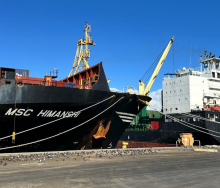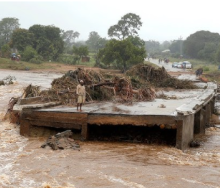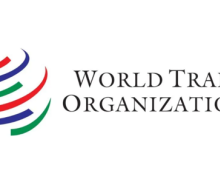Access to new export markets such as China and India could arrest the decline in competitiveness in the local fruit canning industry.
Research by an insider of the Western Cape’s canned fruit industry shows a concerning decline in competitiveness in an industry that exports 85% of its products annually.
Industry and government should join forces for a recovery plan of the country’s valuable deciduous fruit canning industry, which has been in decline since 2016.
This is according to research by Dr Heinrich Jantjies, group risk, safety and security director at Tiger Brands, which owns one of two canneries serving the deciduous fruit industry.
The canned fruit industry exports about 85% of its products annually and employs more than 7 500 people in the Western Cape.
Jantjies’ findings form part of his PhD studies at Stellenbosch University.
The other cannery in the Western Cape is owned by RFG.
“In 2021, the export value of canned fruit was US$112 million (R2bn), with canned peaches leading at $47.6 million (R870m), followed by pears, mixed fruit, and apricots. This is an increase from $94.7 million (R1.7bn) in 2002, though lower than the peak of $186.2 million (R3.4bn) in 2010.”
However, the industry's competitiveness rating (according to the relative trade advantage – RTA formula) dropped from 23.03 in 2016 to 17.02 in 2020. Pears, however, were an exception, improving from an RTA of 33.96 in 2016 to 40.40 in 2020. “This explains the industry’s strong and resilient character.
“A well-developed industry infrastructure, the availability of storage and handling facilities, competition in international markets, bargaining power of canning firms, relationships with international retail markets and agents, and access to and availability of renewable energy are some of the factors that help the industry to remain competitive,” says Jantjies.
“On the other hand, things like a lack of innovation in canning technology, a lack of local sales and access of new competitors in the local market, the possibility of land expropriation without compensation, the impact of climate change on fruit yields, and negative perceptions associated between canned fruit and health constrain the industry’s competitiveness.
“It commands a leading position in South African agribusiness and supports growth in foreign exchange earnings, employment – providing jobs to more than 7 500 people in the Western Cape – and related rural development.
Jantjies explored the ways to measure and analyse the competitive performance of South Africa's deciduous fruit industry, with a particular focus on the canning and processing sector. The investigation covers the early 1960s to the early 2020s. Jantjies also compared canned deciduous fruit with other major local fruit/vegetable export-driven enterprises such as apples, plums, citrus, wine and avocados.













